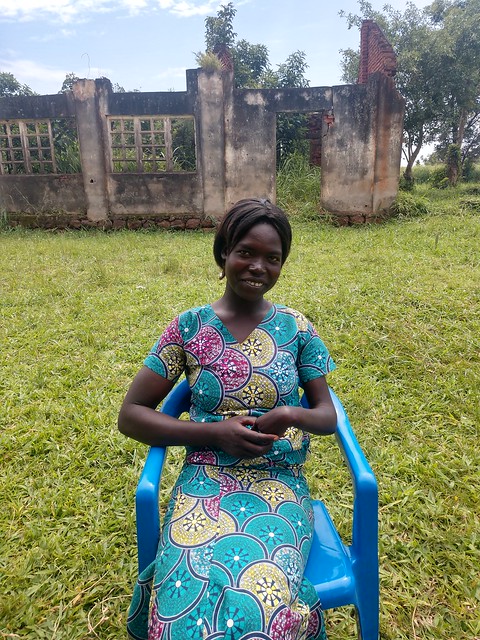Nancy is the oldest of seven children. In Uganda, being the oldest child carries a lot of responsibilities which made the fact that Nancy is disabled especially difficult. “My parents love me, but my father struggles to accept me.” She told me that for a long time her father blamed god for her disability. Imagine being born into a world were even your father sees you as inferior, what would that do to a child’s self-esteem?Once Nancy began school, things only became more difficult. “Some people have disabilities that you cannot see, those are the lucky ones. Children would see me and mimic my arm, which really hurt me.” Anyone reading this should try to remember being a child. The fear of not fitting in is universal. Nancy’s entire life has been defined by one feature of her body. It’s unfair. It’s heartbreaking, but for Nancy, it’s an everyday occurrence. She says people treat her like a child because of her disability, even though she’s exceptionally sharp. She wants to become a seamstress, but for now she farms. I asked her if it’s difficult for her to use a hoe with her disabilities to which she quickly replies “”It’s not easy, but I can farm better than you!” Current score: Nancy – 1, Chris – 0.
Nancy is quite a charming, albeit spunky, young woman. I noticed during our interview that some teachers were standing a few feet away. I thought they were curious about the question I was asking or maybe they just wanted to see the mono (Acholi for white person). My ego quickly deflated once I concluded the interview, and the teachers flocked to Nancy. They began joking and laughing like old friends. One teacher took Nancy by the hand and walked away with her, their laugher still echoing off the classrooms at Tochi Primary School. And I was left sitting there, alone. Updated score: Nancy – 2, Chris – 0.
Posted By Chris Markomanolakis (Uganda)
Posted Aug 2nd, 2018





3 Comments
Corinne Cummings
August 3, 2018
Hi Chris, great blog post — after reading your words, my immediate thoughts went to the concept of intersectionality. I am curious as to how patriarchal driven Uganda is and how that consequently impacts the women that have disabilities compared to the men that also have disabilities. I enjoyed reading Nancy’s sense of humor and how you translated it to your blog post. It was very charming. She has a lot of tenacity — nothing will get in her way! I wish her luck at becoming a seamstress. I heard the larine is complete at Awach! I am so happy that you were able to see it through before the end of your Fellowship. Excellent work, Chris. I look forward to reading your last few blog posts. Best, Corinne
Princia Vas
August 6, 2018
Very interesting blog, Chris! Thank you for sharing the story of Nancy with us 🙂
Ali
August 6, 2018
Thanks for sharing, Chris! I really enjoyed reading Nancy’s story. The work you are doing in Uganda is so important – keep it up!